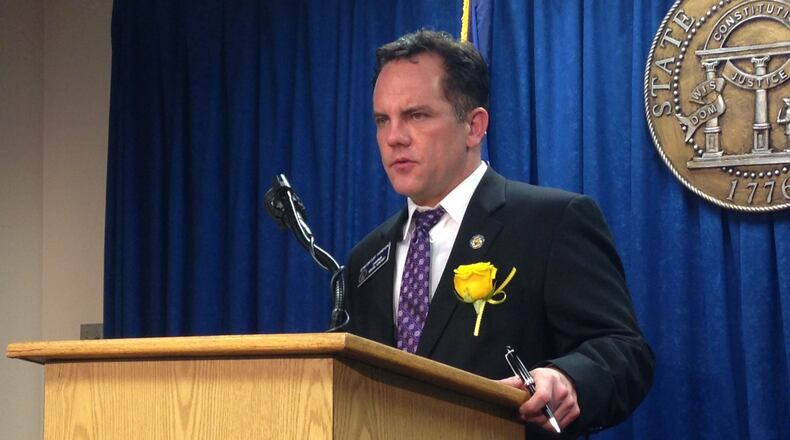Political observers speculated that Gwinnett’s failed MARTA vote might be the final big victory for conservatives in a county whose electorate is rapidly moving in the other direction.
This week's news that Commission Chairman Charlotte Nash won't seek re-election in 2020 may be a big step to proving them right.
Nash, a Republican who has earned respect from both sides of the aisle, likely would've faced an uphill battle even if she'd run. Hers is a countywide position and, March's lower-turnout transit vote aside, Democrats have dominated such elections in recent cycles.
With a majority on the county commission also at stake — and on the same ballot as 2020’s presidential election — Nash’s planned retirement couldn’t come at a worse time for the GOP.
“I think it throws it wide open,” said former state Rep. Buzz Brockway, a Republican from Lawrenceville.
Between 2010 and 2018, Gwinnett saw the biggest jump in Democratic voter participation in the state. In November's governor's race, Democrat Stacey Abrams took Gwinnett by more than 14 points. The shift has Gwinnett District Attorney Danny Porter, the county's longest serving Republican, considering running as a Democrat in 2020.
Local Democrats were already confident about their future in Gwinnett. They’re even more so now.
“It doesn’t change our plans in any substantial way,” Gwinnett Democratic Party chair Bianca Keaton said of Nash’s announcement. “Gwinnett is clearly a Democratic county.”
Nash worked in the Gwinnett County government for nearly three decades and was, somewhat reluctantly, drafted out of retirement to take the commission’s reins in 2011.
She restored order in the wake of a land deals scandal that claimed the careers of three commissioners. She also calmed a national controversy several years later, when colleague Tommy Hunter triggered a firestorm with a series of controversial Facebook posts.
Hunter’s 2017 posts, which among other things called U.S. Rep. John Lewis a “racist pig,” have been credited with helping to energize Gwinnett’s already growing Democratic base.
Nash is certainly aware of Gwinnett’s recent blue wave and, despite her increasingly progressive credentials on some issues — homelessness and transit, for example — the chairman hasn’t been immune to criticism.
But she said her home county’s changing politics didn’t play a role in her decision.
“There are always many factors that affect a big decision like this one,” Nash said, “but fear of change is not one of the reasons in this instance.”
Regardless of the rationale, her retirement does make the tight spot faced by her GOP colleagues even more uncomfortable.
When Ed Muldrow took over as chairman of the Gwinnett Republican Party earlier this year, he vowed to shake the organization out of the complacency he saw taking hold after decades of dominance in the county.
Muldrow said the party is always keeping an eye out for good candidates and won’t be “hoping and praying somebody falls out the sky for us.” And there’s still a good pitch to be made for Republican leadership in Gwinnett.
“When people come in from outside the state or outside the county and they move into Gwinnett, they do it for a reason,” Muldrow said. “If you realize that things are the way they are because of what Republicans have put in place, then maybe you realize we need to keep that going.”
Brockway, the former state representative, agreed.
“We’re still a growing county. People are still moving here and businesses are still moving here, and the business community especially likes stability and calm,” he said. “So I think if candidates are gonna come out there and promise radical change, then that could be a big problem.”
At least two Democrats are already planning to seek Nash’s seat.
Art Sheldon, a transit advocate from Duluth, has quietly started his campaign. Former state Sen. Curt Thompson has been more public.
Thompson said Nash’s retirement presents a “great opportunity for us to flip a county that used to be considered a Republican stronghold.”
“For several months now we’ve been going around the county and speaking with people, listening to their thoughts and concerns,” he said. “We’ve found that our progressive message of a building a bridge to Gwinnett’s future resonates well.”
About the Author
The Latest
Featured

